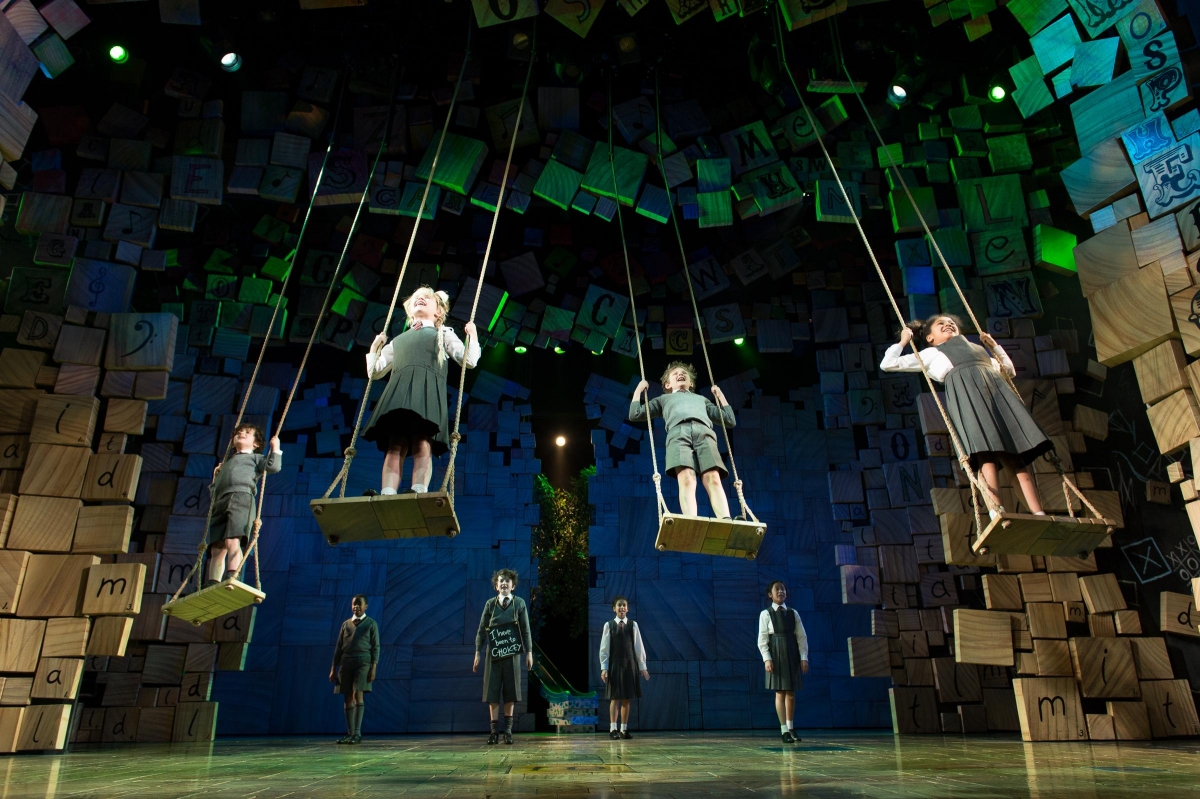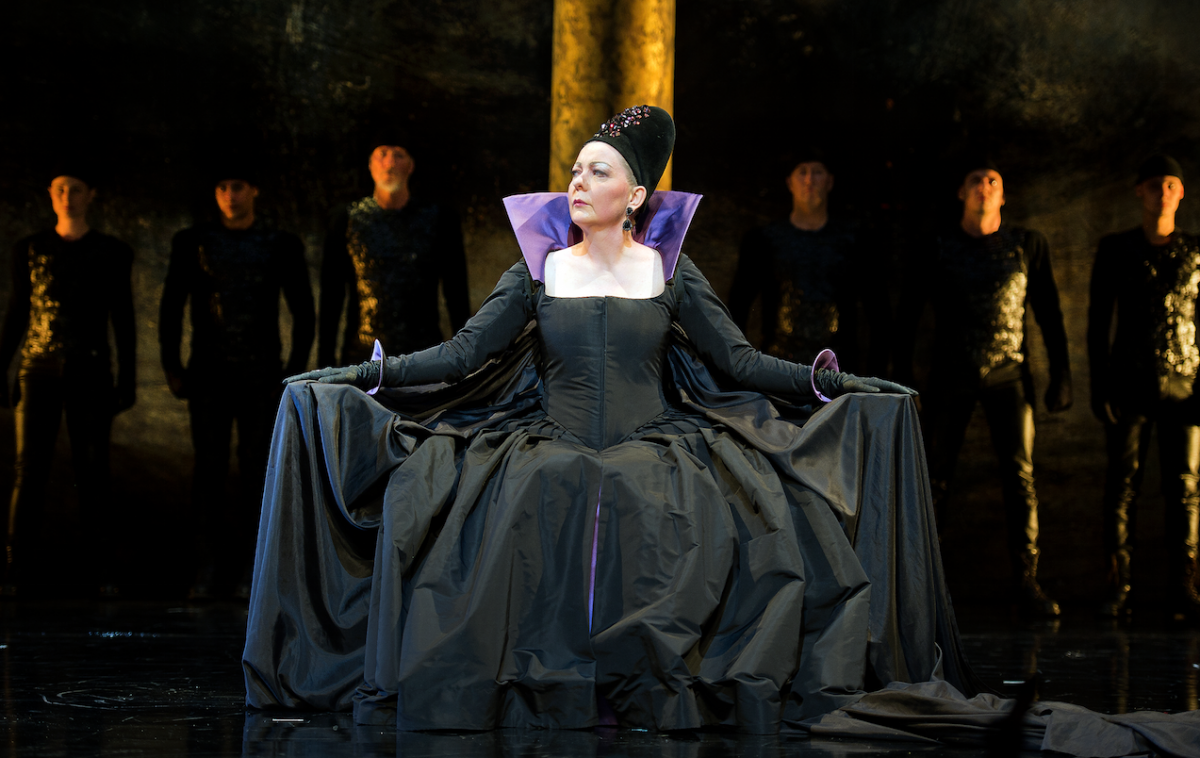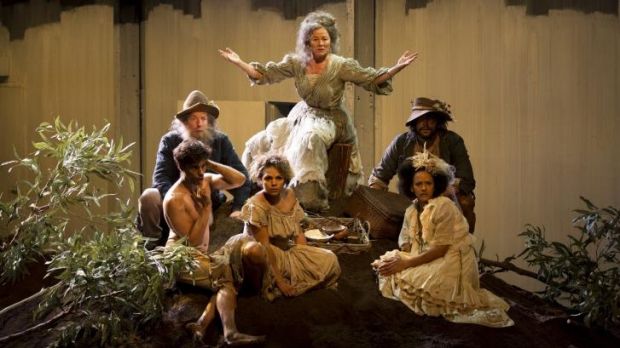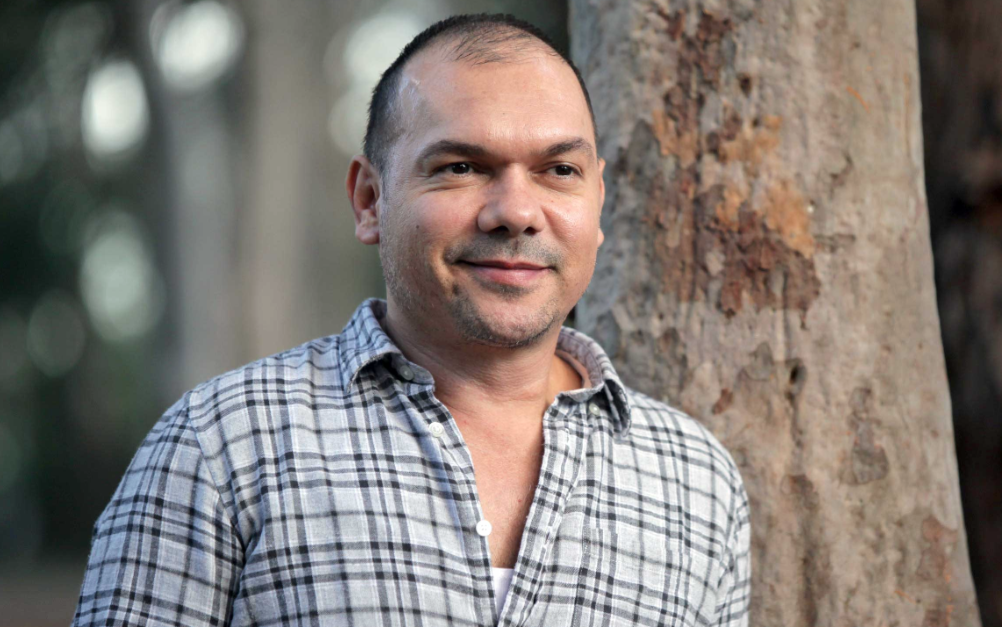In an extraordinary clean sweep, Matilda the Musical was not only the biggest winner at last night’s 2016 Helpmann Awards but the biggest winner in the history of the event.
Based on Roald Dahl’s darkly irreverent, much-loved children’s novel, the Royal Shakespeare Company production with book by Dennis Kelly and songs by Tim Minchin won an unprecedented 13 awards topping Mary Poppins, which won eight in 2011. The musical, which premiered in Stratford-upon-Avon in 2010, has previously won eight Olivier Awards and five Tony Awards.
In a competitive field that also included Little Shop of Horrors, Fiddler on the Roof and The Sound of Music, Matilda (produced in Australia by Louise Withers and a team of co-producers) triumphed in all of the categories in which it was nominated including Best Musical, Best Direction of a Musical (Matthew Warchus) and Best Original Score (Minchin).

Matilda the Musical
The eight young girls who shared the role of Matilda in Sydney and Melbourne (Molly Barwick, Dusty Bursill, Tiana Mirra, Alannah Parfett, Sasha Rose, Georgia Taplin, Bella Thomas and Ingrid Torelli) were named Best Female Actor in a Musical. Acting awards also went to James Millar as Miss Trunchbull, Elise McCann as Miss Honey and Daniel Frederiksen as Mr Wormwood.
The only other musical to get a look-in was Queensland Theatre Company’s Ladies in Black, featuring songs by Tim Finn and a book by Carolyn Burns, which won Best New Australian Work. Ladies in Black will tour nationally in 2017, opening in Sydney at the start of the year.
Established and administered by Live Performance Australia (LPA), the 16th annual Helpmann Awards were presented at a star-studded ceremony on the set of Singin’ in the Rain at Sydney’s Lyric Theatre.
Perhaps the biggest surprise of the night was the appearance of Shannon Pigram, the business partner and boyfriend of Jarrod Carland, Executive Director of Brisbane Baroque, given recent revelations that the festival is still to pay many of its performers including cast members of the nominated Agrippina.
In June, the inaugural Sydney Sings festival scheduled for this week – which like Brisbane Baroque was headed by Artistic Director Leo Schofield – was cancelled owing to “the unexpected illness” of Carland. Both festivals are headed by the same team of directors: Carland, Pigram and another member of Carland’s extended family.
Produced by Brisbane Baroque in association with the Queensland Performing Arts Centre (QPAC), Agrippina won four Bobbys, taking out Best Opera as well as performing awards for Carlo Vistoli, Joao Fernandes and Keri Fuge.

Ulrike Schneider as the scheming Agrippina
In video messages, the three opera singers thanked cast and crew but didn’t mention Brisbane Baroque. Accepting the Best Opera award on behalf of Carland, Pigram said: “Unfortunately he is in hospital tonight recovering from a serious condition and has been for some months. But I do have a few things that I just want to say on his behalf though. Brisbane Baroque has faced significant challenges over the year but the seven nominations tonight, culminating in this award for Best Opera – the second year in a row, might I add (following Farramondo in 2015) – highlight the quality of the event and its importance on the national arts calendar.”
Opera Australia came away with just two awards: Best Director of an Opera (Sir David McVicar for The Marriage of Figaro) and Best Female Performer in an Opera (Nicole Car for Luisa Miller).
Best Symphony Orchestra Concert went to Sir Simon Rattle Conducts the Australian World Orchestra. Best Chamber and/or Instrumental Ensemble Concert was won by the Australian Brandenburg Orchestra for its French Baroque with Circa concert, while French pianist Pierre-Laurent Aimard (presented by Melbourne Recital Centre and the Sydney Symphony Orchestra) won Best Individual Classical Music Performance.
Best Australian Contemporary Concert went to Kate Miller-Heidke and the Tasmanian Symphony Orchestra with visuals by Amy Gebhardt, performed at MONA FOMA.
There have been criticisms in the past about the dominance of Sydney and Melbourne productions at the Helpmanns. This year, nominations in the theatre and dance categories were spread more broadly but a handful of productions took out most of the awards.
The Bleeding Tree, a darkly poetic new Australian play by Angus Cerini about domestic violence, set in the outback, was named Best Play. Produced by Griffin Theatre Company, it also won Best Direction of a Play (Lee Lewis) and Best Female Actor in a Play (Paula Arundell).
Mark Leonard Winter won both Best Male Actor in a Play for Melbourne Theatre Company’s Birdland (MTC’s only award of the night) and Best Male Actor in a Supporting Role for his portrayal of Edgar in Sydney Theatre Company’s King Lear. In STC’s only other award, Sarah Peirse was named Best Female Actor in a Supporting Role in a Play for The Golden Age.

Robert Menzies, Sarah Peirse, Anthony Taufa, Liam Nunan, Rarriwuy Hick and Zindzi Okenyo in The Golden Age © Lisa Tomasetti
In a turnaround from last year when Sydney Dance Company won all four of the dance categories, SDC came away empty handed as did the Australian Ballet. Bangarra Dance Theatre won three awards for Sheoak: Best Ballet or Dance Work, Best Choreography in a Dance or Physical Theatre Work (Frances Rings) and Best Female Dancer (Yolanda Lowatta).
In an emotional speech, Rings dedicated her award to David Page, Bangarra’s Musical Director who died unexpectedly in April. In another moving moment, Hunter Page-Lochard introduced Stephen Page – “my Dad and my mentor” – as winner of the prestigious JC Williamson Award for outstanding contribution to the Australian live performance industry.
Page, who this year celebrates 25 years as Artistic Director of ground-breaking indigenous dance company Bangarra, was greeted with a standing ovation.
Acknowledging the traditional owners of the land, Page said: “With land comes stories, and that’s why we’re all here tonight. We’re all here because we all have a story and art is the best medicine.”

Stephen Page
Noting that Bangarra is the only indigenous company among the 28 major arts organisations funded by the Australia Council, he said: “We have to lead the way for other brothers and sisters and hope for the future there will be major performing arts in all those other arts and mediums for Indigenous peoples.” Page dedicated his award to his brothers David and Russell, a beautiful dancer who died in 2002, saying: “Without them there is no way I would be standing here today.”
Michael Lynch CBE AM, who is one of Australia’s most experienced and respected arts administrators, was presented with the Sue Nattrass Award for exceptional service to the Australian live performance industry. The final Brian Stacey Award for Emerging Australian Conductors was also presented to Toby Thatcher who is currently Assistant Conductor at the Sydney Symphony Orchestra.
Highlights of the evening’s entertainment included performances by the eight Matildas and the casts of Singin’ in the Rain, Ladies in Black and The Sound of Music, while Andrey Gugnin, the 29-year-old Russian winner of this year’s Sydney International Piano Competition, gave a fiery account of Prokofiev’s Piano Sonata No 7.
Click here to view the full list of the winners











Comments
Log in to join the conversation.